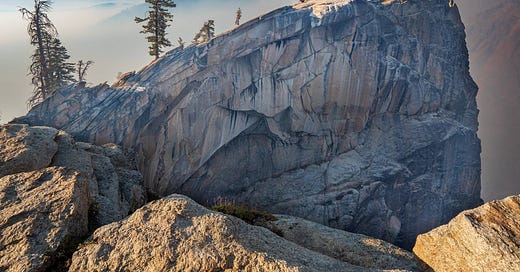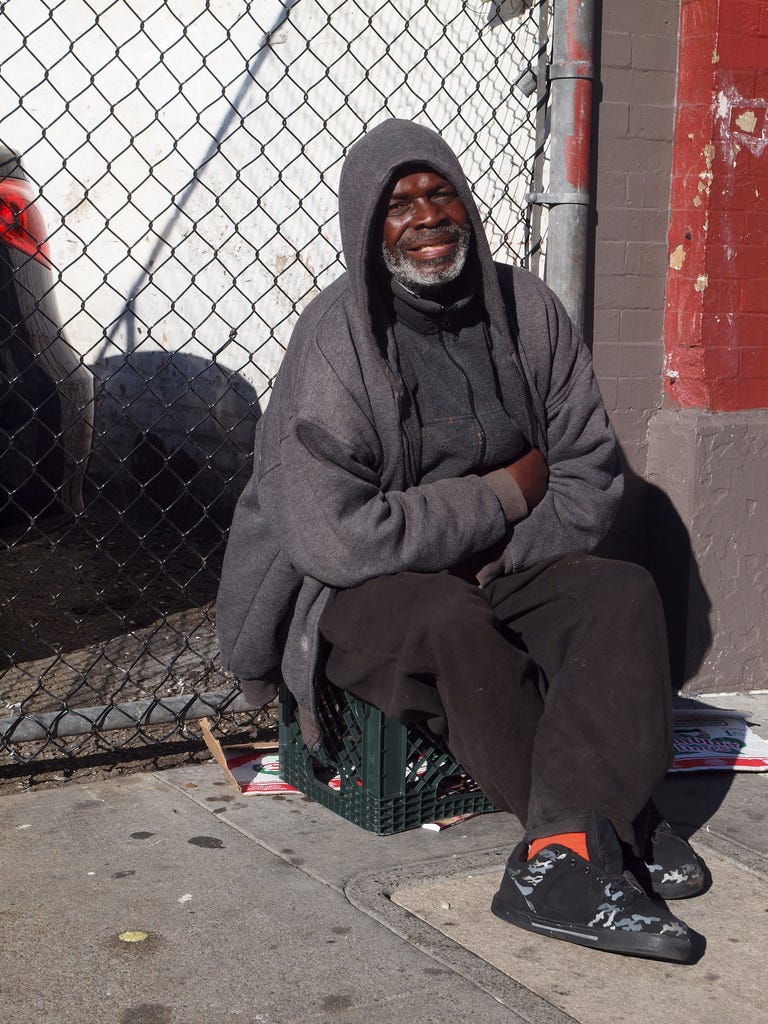I stood at the peak of the Watchtower, a 9,000 foot peak in Sequoia National Park, taking in the sublime natural beauty of the scene before me.
Screaming shattered the serene peace. Behind me three Pakistani young men cried out for help.
I turned, ready to come to their aid. Then they began laughing. These men were not in any danger; they simply enjoyed the sound of their own voices echoing in the canyon. That this might bother the other hikers or create a false sense of emergency was not only not a concern but part of the fun! One youth began to loudly impersonate the sounds of a woman in orgasm. Another shouted “Fuck India, Pakistan is the greatest!”
These young men are an example of a powerful tendency among many human beings: the desire to make noise precisely because it is disruptive. For these human beings silence is a terrible curse. They hate it. For them, making noise, no matter how stupid and purposeless, is preferable to listening to their own thoughts (assuming they have thoughts at all.)
Harassing others, polluting, and littering are, for some, highly enjoyable activities. Disrupting the lives of others is a way to express power and dominance. Auditory terrorism—the intentional and senseless use of noise to annoy and harass—is a particularly common manifestation of this impulse.
Serious contemplation is the foundation of civilization. It is the human ability to think and to speak rationally that distinguishes us from the other animals. Thinking, however, requires focus and a lack of distractions. A constant din of noise gets in the way.
Silence, therefore, is inextricably linked to civilization
It is no wonder that we find the fathers of civilization in Ancient Greece cultivating oases of peace in which to conduct their work. We are told by Aristophanes that the location for Plato’s school featured sacred olive groves and a number of shaded walks. Other Greek writers note that the Academy began first as a public park located in a part of Athens surrounded by graveyards, altars, and sanctuaries—a place of relative quiet away from the epicenter of the bustling Agora, or marketplace.
The first founders of education and learning preferred to conduct their philosophic conversations in private and in quiet places where earnest and serious discussion were possible.
Drowning our lives in sound without making room for spaces of quiet and contemplation is a weapon in the hands of the powerful to strip away the humanity of those human beings who can think. The din of lawnmowers, leaf blowers, cars, and blaring music in public places are forms of pollution to the higher human type. It is imperative that we work to carve out spaces of silence and meditation in the midst of the cacophony that threatens to overwhelm fragile islands of thinking and spiritual growth.
Cultivating silence is an intentional choice and one that more Americans should pursue in this time of political and civilizational chaos.
One of the most striking aspects of being in the third world is the lack quiet places. There is no reprieve from the shopkeepers hawking their wares, the rumble of engines, the clank of machinery. The Western impulse to build public parks, libraries, and churches, represents the desire of civilized man to create preserves of serenity, meditation, and contemplation even in the middle of the bustle of city life.
Noise making is also an inevitable part of making civilization possible, of course. We need trains, airplanes, and trucks to ship needed goods across the landscape. Construction equipment is a necessary part of building the infrastructure necessary for our advanced way of life. The point is not that we should make the whole world into a library foyer but to become mindful of preserving and cultivating the places of quiet that already exist.
I have often noticed large numbers of people, especially the young, with their earphones in everywhere they go. This is neither necessary nor healthy. It is not good for human beings to spend their entire lives immersed in sound. We must make space for silence.
We also need to be more aggressive about cracking down on anti-social and disruptive auditory terrorism. I once rode the subway in Washington DC during rush hour when another passenger, a black homeless man, began loudly rapping along to the music in his earbuds—which involved repeated uses of racial slurs and a disgusting recounting of sexual acts.
Contrast with my experience on the Tokyo subway in the morning rush hour: though the train was full it was almost completely silent, other than the sound of the cars on the track. America does not need to achieve Japanese levels of reserve but a sterner enforcement of prohibitions on noise pollution would serve us well.
Arthur Schopenhauer in a brilliant essay entitled “On Noise” describes the baleful effects of auditory harassment as follows:
“Noise is the most impertinent of all interruptions, for it not only interrupts our own thoughts but disperses them. Where, however, there is nothing to interrupt, noise naturally will not be felt particularly. Sometimes a trifling but incessant noise torments and disturbs me for a time, and before I become distinctly conscious of it I feel it merely as the effort of thinking becomes more difficult, just as I should feel a weight on my foot; then I realise what it is.”
We ought to seek out lives where noisy interruption is less common. We should spend more time in thought instead of senselessly banging about. The auditory and visual bombardment of our time is a kind of psychological oppression. The thoughtless character of our time emphasizes just how necessary the conditions of thinking truly are to civilization. Quiet and contemplation are needed now more than ever.






Protip: the farther away you are from other people, the less you can hear their noise. If you live far enough out all you have to be concerned about is quieting your appliances, which can be done.
As for headphones, ordered noise is better than disordered noise. When you have to descend into the screaming abyss, headphones are necessary protective equipment. (Counterpoint: they make you an easy mark when the harassment escalates beyond obnoxious behavior.)
I've known people who find the quiet disquieting. Fortunately none of them were fun to talk to anyway, so it was a mute point.
Silence is divine.
Mark 4:39 (CSB)
He got up, rebuked the wind, and said to the sea, “Silence! Be still! ” The wind ceased, and there was a great calm.
1 Kings 19:12 (CSB)
After the earthquake there was a fire, but the LORD was not in the fire. And after the fire there was a voice, a soft whisper.